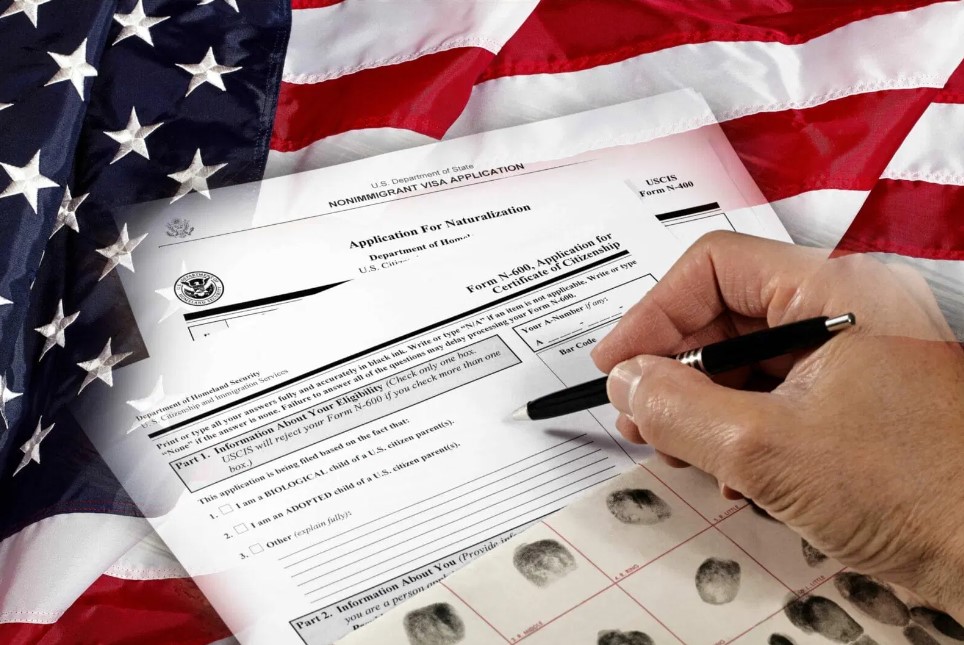Citizenship Lawyer Essentials: Navigating the Path to Naturalization
February 27, 2024
Navigating the intricate maze of citizenship and immigration law can be daunting for individuals seeking to become citizens of a new country. We, as citizenship lawyers, specialize in the legal processes associated with acquiring citizenship, whether it be through naturalization, birthright, or other legal means. It is our role to provide expert advice, represent our clients in legal proceedings, and guide them through the complex regulations and paperwork that citizenship applications entail.
When prospective clients approach us, our initial step involves a thorough consultation. During this initial consultation, we assess the unique circumstances of each case, inform clients of the potential pathways to citizenship, and establish the legal strategies that could be employed. This foundational meeting serves as a pivotal starting point for mapping out the legal journey ahead. Learn more about citizenship and naturalization lawyer
Given the impact such legal decisions can have on a person’s life, we approach each case with a high level of diligence and precision. Our consultations are designed to create a clear understanding of the steps required for citizenship, highlight the legal intricacies involved, and set realistic expectations about the process and timeline. We commit to supporting our clients professionally through each phase, ensuring that they are well-informed and that their rights are upheld throughout the citizenship process.
Understanding Citizenship and the Naturalization Process
In this section, we provide a comprehensive overview of the journey toward U.S. citizenship, from meeting eligibility criteria to the complexities of the legal process and the final pledge of allegiance.
Eligibility and Legal Requirements for U.S. Citizenship
To become an American citizen, a green card holder must meet specific criteria. One must be at least 18 years old, a lawful permanent resident for at least 5 years (or 3 years if married to a U.S. citizen), and have maintained continuous residence and physical presence in the States. Additionally, good moral character is a prerequisite, and any crime or deportation proceedings can impact eligibility.
The Naturalization Procedure: Steps and Documentation
The naturalization process is initiated by filing Form N-400 with USCIS. Applicants must gather extensive paperwork to support their citizenship application, including proof of lawful permanent residency and identification documents. Throughout the application process, one may receive a request for evidence to provide additional documentation.
Citizenship Through Military Service
Members of the U.S. armed forces can seek citizenship through expedited or posthumous naturalization. Military service during peacetime or wartime comes with its own set of qualifications, and applicants are expected to demonstrate loyalty to the U.S. through their oath of allegiance.
Challenges in the Naturalization Process
Applicants may encounter difficulties such as extensive paperwork, long processing times, and intricate legal barriers. Those with a history involving crime or removal proceedings face heightened scrutiny. An appeal may be necessary if USCIS denies the initial application.
Citizenship Tests: Language and Civics Requirements
Prospective citizens must pass an English language test, demonstrating writing, speaking, and reading proficiency. The civics test assesses knowledge of U.S. history and government. Both tests require preparation and are assessed by a USCIS officer.
The Oath Ceremony and Pledging Allegiance
After approval, the final step is the oath ceremony. Here, candidates publicly swear loyalty to the U.S. by taking the Oath of Allegiance. This is the formal act that bestows the rights and responsibilities of an American citizen.
Birthright and Acquired Citizenship
Birthright citizenship grants anyone born on U.S. soil US citizenship. Acquired citizenship applies to children of U.S. citizens born abroad, where different legislative acts determine the transmission of citizenship status from parent to child.
Roles and Responsibilities of Citizenship Lawyers
Citizenship lawyers, specialized in immigration law, offer essential assistance. They provide consultation on eligibility, help navigate complex legal hurdles, ensure proper filing of forms, and represent individuals in appeals and proceedings. They are pivotal in transforming lawful residents into fully vested citizens.
Legal Support and Representation
In guiding clients through the intricacies of citizenship processes, we provide essential support and representation. Deftly navigating paperwork, legal requirements, and unexpected challenges, our expertise ensures our clients are well-prepared and represented.
When to Consult a Citizenship Lawyer
We often advise clients to consult with us for an initial consultation at the earliest stages of their immigration application. Whether you are beginning the process of applying for naturalization with Form N-400 or facing USCIS inquiries, the expertise of a citizenship lawyer early on can clarify the legal requirements and strengthen your application.
Dealing with Complex Cases and Legal Hurdles
Complex cases, particularly those involving past crimes or complications in immigration history, require meticulous attention. We skillfully address USCIS requests for evidence or concerns about the applicant’s good moral character to preempt potential issues that may arise during the naturalization process.
The Appeal Process and Overcoming USCIS Denials
When an immigration application faces denial, our team is prepared to leverage the appeal process. We help clients understand why USCIS made their decision and meticulously develop a strategic plan, aiming for a positive outcome in a resubmission or formal appeal.
Assistance with Visas and Green Card Issues
From navigating visa classifications to addressing issues surrounding the status of green card holders, we assist clients in maintaining or changing their legal status. We ensure that all paperwork is accurate and fully compliant with USCIS regulations, preventing unnecessary delays.
Adjustment of Immigration Status and Naturalization
Our team facilitates the adjustment of immigration status for those transitioning from a visa to a lawful permanent resident, and ultimately to a naturalized citizen. We help clients understand every requirement and attend to the details that can make a significant difference in USCIS decisions.
The Role of Citizenship Lawyers in Fostering Good Moral Character
A key component of the naturalization process is establishing good moral character. Our job is to guide clients in presenting themselves accurately and positively, addressing any possible concerns that a USCIS officer or the law may raise regarding past actions or criminal records.
